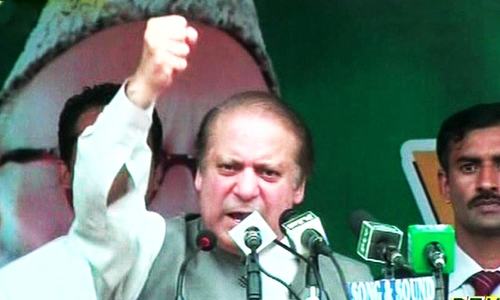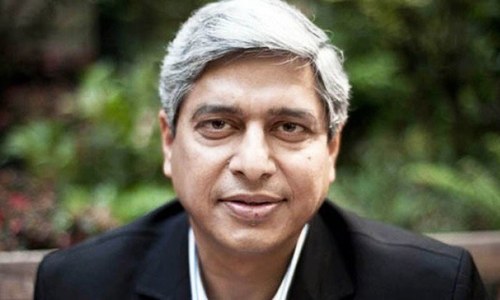ISLAMABAD: Adviser to Prime Minister on Foreign Affairs Sartaj Aziz, reacting to Indian Minister for External Affairs Sushma Swaraj’s statement on Kashmir, stated on Sunday that a verdict on the future of Kashmir can only be given by the people of Kashmir.
“Such a verdict on the future of Kashmir can only be given by the people of Kashmir and not by the External Affairs Minister of India.”
Aziz added the right to self-determination has been given to the people of Kashmir by the United Nations Security Council.
“It is high time that India allowed the people of Jammu and Kashmir to exercise this right through a free and fair UN supervised plebiscite,” stated the foreign affair adviser.
Aziz further said the world will accept the decision taken by the Kashmiri people, and it is their choice to either integrate with Pakistan or India.
Swaraj had also disagreed with Pakistan terming Burhan Wani, a Hizbul Mujahideen separatist commander, as a martyr and stated Wani was a wanted terrorist.
“India cannot ignore the fact that over 200,000 Kashmiris participated in the funeral prayers of Burhan Muzaffar Wani in 50 different locations throughout Indian-occupied Kashmir, despite strict curfew which still continues 15 days after Wani’s extrajudicial murder on 8 July 2016,” replied Aziz to Swaraj’s earlier statement.
"Let us not forget, as one Indian writer has reminded us, that not long ago the British labelled Indian freedom fighters as traitors and terrorists because at that time India was considered an integral part of the British Empire,” added Aziz.
Aziz assured the people of Kashmir that the government and the people of Pakistan remain firmly committed in their moral, diplomatic and political support to the Kashmiris’ indigenous movement for self-determination and resolution of the Kashmir dispute in accordance with the relevant UN Security Council Resolutions on Kashmir.
Swaraj on Saturday said Pakistan's Prime Minister Nawaz Sharif must understand that "Kashmir can never become a part of Pakistan".
The Indian minister also accused Pakistan of backing militants with the help of UN-designated terrorists and notorious figures such as Hafiz Saeed, in order to turn the valley into a living hell.
Uptick in violence
The current episode of violence in India-held Kashmir is the worst civilian violence to hit the restive region since 2010, when mass protests broke out against Indian rule.
Wani, a 22-year-old commander of Kashmir's largest pro-independence militant group Hizbul Mujahideen (HM), was killed along with two other separatists during a brief gun battle with Indian government forces.
Wani joined the HM group at the age of just 15, and was viewed as a hero by many in Kashmir. The state's former chief minister Omar Abdullah tweeted after his death that he had become the “new icon of Kashmir's disaffected”.
Witnesses said tens of thousands attended his funeral despite a curfew imposed by Indian authorities, chanting independence slogans and firing pistol shots in his honour.
Indian Prime Minister Narendra Modi had called an emergency meeting to discuss escalating violence in India-held Kashmir amid anti-India protests that have left at least 30 people dead and hundreds injured in clashes with authorities.
Pakistan's Foreign Office has also condemned the violence in Indian-held Kashmir and the extra-judicial killing of Wani.
HM is one of several groups that for decades have been fighting around half a million Indian troops deployed in the region, calling for independence for Kashmir or a merger with Pakistan.
Kashmir has been divided between rivals India and Pakistan since 1947, but both claim the territory in its entirety.
Tens of thousands of people, mostly civilians, have died in the fighting since 1989.













































